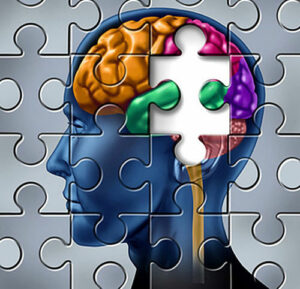A monthly article brought to you by Senior Services Memory Support Programs
Alzheimer’s Disease is a term that gets a lot of attention because it has affected so many people. If you take a moment, you will likely be able to think of numerous people in your life both past and present that have been touched by this disease.
Many think that Alzheimer’s Disease and dementia are one and the same. However, Alzheimer’s Disease is just one type of dementia. It is considered to be the most common dementias accounting for 60-80% of all cases.
As people age, protein clumps called tangles and plaques develop in the brain. In Alzheimer’s Disease, too many tangles and plaques build up. The nerve cells become blocked by the protein tangles and plaques. The blocked nerve cells do not receive communication from the network. They also do not receive what they need to survive so the nerve cells die. When this occurs, that part of the brain shrinks.
So how does someone know if they have Alzheimer’s Disease? Well, this can only be determined by a doctor, but it is important to watch out for some key indicators.
The symptoms are mild at first but worsen over several years. These symptoms may include:
 Forgetting how to use everyday items such as a microwave or a toothbrush
Forgetting how to use everyday items such as a microwave or a toothbrush- Forgetting how to do common everyday activities such as cooking
- Misplacing items and not being able to think through the problem to find them
- Becoming suspicious, fearful or jealous
- Increasing difficulty finding the right words when speaking or writing
- Repeating the same questions over a short period of time
- Inability to remember recent events or conversations
- Having poor judgment about how to behave appropriately in public
- Confusion about place and time
- Changes in mood and personality
When you are starting to notice memory changes, seeking early detection is key. Senior Services offers an array of memory support programs including confidential memory screenings to obtain a cognitive baseline, an early memory loss program, and educational classes along with support from Seasons Adult Day Health Services. If you or someone you know is experiencing increasing changes with their memory and could benefit from additional services, please contact Amy Sheridan, Family Support and Activity Manager at 989-633-3764.
Check out our section, Our Mind Matters, next month as we will dive into Vascular Dementia, the second most common type of dementia.

